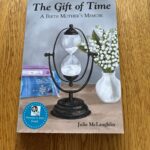One of the odd and sometimes sad realities of many marriages is that the opposites, which originally contributed to your falling in love, can actually begin to erode the relationship in the later stages of marriage. The same opposites that first attracted you can eventually become annoying and bring about conflict.
To the serious minded person, that happy-go-lucky personality that originally beguiled her can begin to feel frivolous and unsupportive. She wants someone who helps around the house and relieves some of the workload. Likewise, for the fun-loving person who was originally drawn to the character strengths of his serious-minded mate, those qualities can eventually begin to seem dull, drab, and unexciting. He doesn’t want to spend his time working; he wants someone who likes to have fun.
In this kind of scenario, resentments can grow and marriages begin to unravel.
But it doesn’t have to be this way. Understanding those basic personality traits and learning to use the strengths and weaknesses of each partner to compliment the other can actually give you a stronger marriage and fill in the gaps. As you learn to appreciate each other’s strengths and humbly admit your own weaknesses, you become a stronger team to face life’s challenges.
Ann and Rocky
“When we learned about the personality differences and saw that I was a lion and he was an otter, we began to understand why we had some of the conflicts we had,” Ann told our Marriage 911 class when she and her husband gave their testimony a few years after they had reconciled from a four year separation. ”It was so much easier for us to work together and make the most of our strengths and weaknesses. Understanding the personalities made a huge difference in our relationship and the way we interacted with each other.”
The “lion” and “otter” Ann refers to are the terms sometimes used to describe two of the four personality types first developed by Hippocrates. The more universal terms used by him and many personality professionals are sanguine, choleric, melancholy, and phlegmatic. The animal equivalents Ann referred to are otter, lion, beaver, and golden retriever. Some newer and more descriptive terms developed by Linda Golden and Linda Goldfarb in their book, Linked, Maximizing Life Connections One Link at Time, are socializer, mobilizer, organizer, and stabilizer.
Understanding Personality Differences
As Gilden and Goldfarb describe them, the socializer or sanguine is the playful one or the life of the party, the mobilizer or choleric is the powerful personality that gets things done, the organizer or melancholy is the purposeful personality who keeps everything in order, and the stabilizer or phlegmatic is the easy going one who keeps things peaceful.
When my husband Marv and I took the tests, we discovered he falls into the sanguine, otter, socializer cagegory, and I am the melancholy, beaver, organizer. Marv has a great sense of humor, is a good conversationalist and a people magnet and is generally tuned into the pop culture. I am more serious and analytical, usually have a list to accomplish, and love working with words. My secondary trait is socializer and his is stabilizer. I love the fun he brings into my life, and he appreciates my nesting instincts that keep our lives in order.
Through the years we’ve gradually learned how our personality characteristics can work together to form a more perfect union as man and wife, but it has taken time.
Packing for Family Vacations
When Marv and I went on a recent trip to the mountains, we laughed at the angst we used to experience in our early marriage when we took vacations with the children. One of the stresses we regularly encountered was the job of packing the car. Being the husband, the father, and the man of the house, he would haul the suitcases out to the car and load them into the trunk. I would typically come out, look inside, and want him to rearrange things to make more room for additional bags and paraphernalia the children and I would bring. It was one of the conflicts that often put a damper on the start of family road trips.
After many years of such frustration, we finally came to a realization about our innate strengths and weaknesses and made a change that satisfied us both. So today while he is stronger than I and carries the suitcases out to the car, I take on the role of organizer and happily set about moving the suitcases and bags around in the trunk until everything fits perfectly. For me as the melancholy, beaver, organizer personality, it is like putting together a puzzle. Meanwhile, he can sit back and watch me maneuver things around while getting out some music CDs to play in the car. As a result, the car is less crowded and more neatly put together and the trip more enjoyable.. Both of us are happy.
Discovering Your Personality Types
By taking the tests at one of the links below, you can discover your own personality type and that of your spouse. Often you will find you have a dominant personality type and one that runs a close second. When you recognize your own strengths and weaknesses and those of your mate you can begin to work together as a team by minimizing your own weaknesses in the home environment and benefiting from each other’s strengths.
Eventually, you may find that when you step back from some of your misunderstandings and look at them from the perspective of your personality differences, problematic practices can be tweaked so both of you win.
You can take an online test at one of the following links to discover your own personality types and that of your spouse.
Solvemymaths.files.wordpress.com
For more help in bringing reconciliation to a troubled marriage, read Fighting for Your Marriage while Separated.






Dear Linda,
I’ve reached the last chapters of “Fighting for Your Marriage While Separated.” My husband and I are separated, but still in the same house. I moved into a spare bedroom about 10 weeks ago. We have been on a cycle, which I call our wilderness, for 10 to 12 of the last years of our 31 year marriage. I do not suffer from physical abuse, but from emotional and verbal abuse, which you do not cover in your book. That was disheartening because I know my wounds are real and oh so deep. My husband is a believer, but not a seeker. He has no patience for my healing and even rejects that I could possibly still be wounded. He does accept that his volatile moods, resulting in inconsistent emotional safety for me and the children, are a problem that he is responsible for. We went to marriage counseling for about a year that helped tame his temper some, but the irrational reactions to everyday life situations continue. He refuses to consider counseling because he’s already done that. Our two oldest see therapists, and I have seen a therapist on my own to address my heart’s inability to heal. All three have said that my husband needs help for a possible chemical imbalance. He refuses and has basically said he’s tired and done. I have been focusing on my relationship with God and trying to stay out of the way so that God can be God in my husband’s life and our marriage.
Dear Tracey,
I apologize for my tardiness in a response. I have been on vacation without Internet access. I know that emotional and verbal abuse is a very real issue and I’m sorry you have had to deal with that. That is a topic all in itself, and I don’t consider myself an expert in that area so that’s why I don’t specifically deal with that in the book. My chapter on “Making Tough Choices,” however, touches on the fact that there are circumstances when you do need to use “heart guards” to protect yourself and your family at times. Proverbs 4:23 says, “Guard your heart for the heart is the wellspring of life.” I think that is a verse to pray over and ask God to show you what that means for you specifically, Also, “Unwrapping the New You” is a chapter you might want to revisit and think about so you can begin nurturing yourself and meeting your own needs, knowing you can’t depend on your husband to meet them. It sounds like you are doing a lot of the right things by focusing on your relationship with God and letting God take care of your husband. Perhaps it might lessen the pain of his hurtful words if you can focus your thoughts on praying for your husband to find healing for himself, realizing that his irrational reactions are not aimed at you, but probably stem from deep wounds within himself. Stepping back to see that his reactions are not because of you, but because of the conflict within himself might help you feel less personally attacked — although I know that’s hard to do.
Have you read my first book, Broken Heart on Hold? If not, that book might actually be more what you need right now as that is specifically focused on helping you heal and become stronger emotionally and spiritually in a troublesome relationship. Your own emotional healing may need to be your first priority right now so you can be strong enough to help others. Again, I’m not an expert on emotional and verbal abuse, and I’m not a licensed counselor so there are probably others who can give you more specific advice in that area.
God bless you, Tracey. May God bring healing to your heart and guide you during this wilderness time.